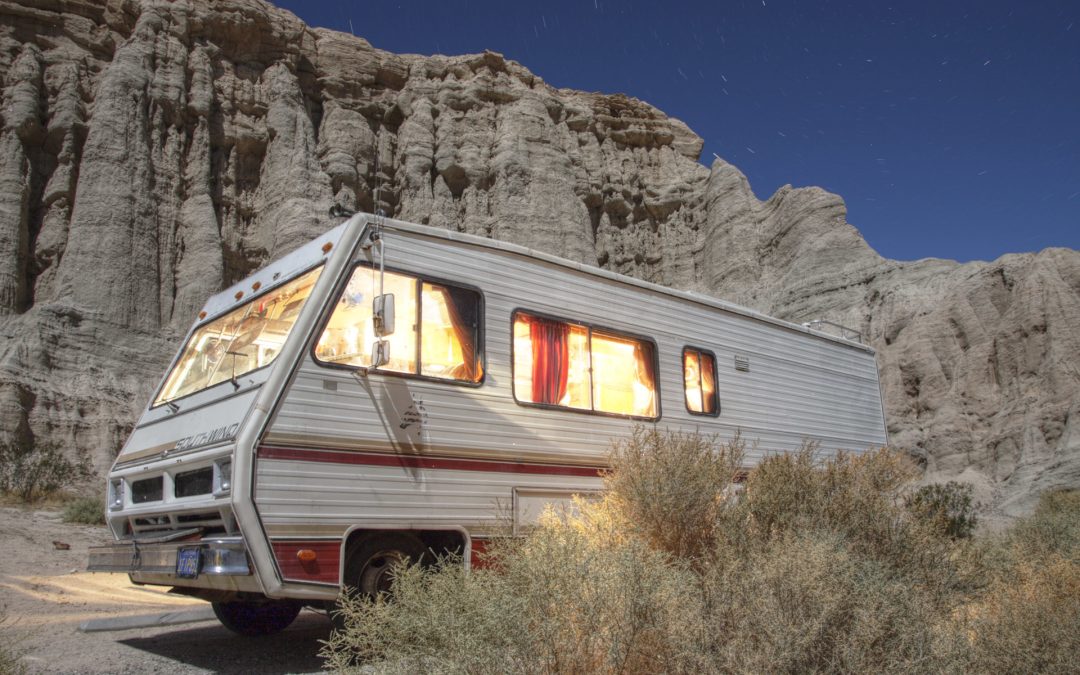Boondocking, also known as dry camping, is becoming increasingly popular among RV enthusiasts. It involves camping without hookups, relying solely on your RV’s battery, water, and waste tanks. While boondocking can provide a unique and rewarding camping experience, it also has its pros and cons. In this article, we will explore both the advantages and disadvantages of boondocking and provide tips on how to make the most out of your dry camping experience.
Pros of Boondocking
- Plan ahead
- Be respectful
- Stay safe
- Conserve resources
- Have fun
Cost-effective
One of the biggest advantages of boondocking is that it is a great way to save money on camping fees. Most campsites charge a fee for hookups, but by boondocking, you can camp for free or for a nominal fee on public lands, such as Bureau of Land Management (BLM) sites or national forests.
More privacy
Boondocking sites are typically less crowded than traditional campgrounds, providing you with more privacy and a better chance to connect with nature. You can choose to camp in more remote areas and enjoy the serenity of the great outdoors.
Unique experiences
Boondocking provides you with the opportunity to camp in more remote and secluded areas, allowing you to experience nature in a way that you cannot in a traditional campground. You may also see wildlife that you would not normally encounter in a more developed area.
Flexibility
Boondocking allows you to be more flexible with your travel plans since you do not have to rely on the availability of hookups. You can camp in more remote areas or stay longer in a particular location.
Adventure
Boondocking can provide a sense of adventure and excitement since you are not always sure what to expect in terms of amenities, weather, or wildlife. It is an opportunity to explore new and uncharted territories and enjoy the thrill of the unknown.
Cons of Boondocking
- Plan ahead
- Be respectful
- Stay safe
- Conserve resources
- Have fun
Lack of amenities
Boondocking sites do not have hookups, which means you will need to rely on your RV’s battery, water, and waste tanks. This can be challenging if you do not have a large enough battery or water tank. You may need to conserve resources and limit your usage of appliances, such as air conditioning or a microwave.
Limited resources
Boondocking may limit your access to resources, such as food, water, and fuel. You will need to plan ahead and bring enough supplies for the duration of your stay. You may also need to drive longer distances to access basic necessities, such as groceries or fuel.
Safety concerns
Boondocking sites can be more remote and isolated, which may present safety concerns. It is important to be aware of your surroundings and take precautions to ensure your safety. Park in well-lit areas and lock your doors at night.
Environmental impact
Boondocking can have a negative impact on the environment if not done responsibly. It is important to follow the principles of Leave No Trace and minimize your impact on the land. Avoid disturbing wildlife or damaging the environment.
Legal issues
Boondocking may not be allowed in certain areas or may be subject to specific regulations. It is important to research the rules and regulations of the area where you plan to camp and follow them accordingly. Failure to do so may result in fines or other penalties.
Tips for Boondocking
Plan ahead
Before embarking on a boondocking adventure, it is important to research the area where you plan to camp and make sure it is legal and safe for boondocking. Bring enough supplies, including food, water, and fuel, and make sure your RV is equipped with a large enough battery and water tank. Planning ahead will help you avoid any unpleasant surprises and ensure a comfortable and enjoyable camping experience.
Be respectful
Boondocking is a privilege, not a right, and it is important to respect the land and the environment. Follow the principles of Leave No Trace and minimize your impact on the land. Avoid disturbing wildlife or damaging the environment. Pack out all of your trash and leave the site cleaner than you found it.
Stay safe
Boondocking can be a safe and enjoyable experience, but it is important to be aware of your surroundings and take precautions to ensure your safety. Park in well-lit areas and lock your doors at night. Be aware of any potential hazards, such as wildlife or hazardous terrain. Carry a first aid kit and a means of communication, such as a cell phone or a radio.
Conserve resources
Boondocking requires you to be self-sufficient, and it is important to use your RV’s resources wisely and conserve water and electricity. Consider using solar panels or a generator to recharge your battery. Use LED lights instead of incandescent bulbs to save electricity. Limit your usage of appliances and turn them off when not in use.
Have fun
Boondocking can be a unique and rewarding camping experience. Enjoy the adventure and take in the beauty of nature. Take the time to explore the area, go on hikes, or relax by the campfire. Boondocking is an opportunity to disconnect from the hustle and bustle of everyday life and reconnect with nature.
Conclusion
Boondocking can provide a unique and rewarding camping experience, but it also has its pros and cons. By understanding the advantages and disadvantages of boondocking and following the tips outlined in this article, you can make the most out of your dry camping experience. Boondocking allows you to explore new and uncharted territories, connect with nature, and enjoy a sense of adventure and excitement. So pack up your RV and hit the road, and remember to be respectful, stay safe, and have fun!
FAQs
- Is boondocking legal?
- Boondocking may not be allowed in certain areas or may be subject to specific regulations. It is important to research the rules and regulations of the area where you plan to camp and follow them accordingly.
- How do I find boondocking sites?
- You can find boondocking sites on public lands, such as Bureau of Land Management (BLM) sites or national forests. There are also websites and apps that provide information on boondocking sites.
- Do I need a special RV for boondocking?
- No, you do not need a special RV for boondocking. However, it is important to make sure your RV is equipped with a large enough battery and water tank and that you have enough supplies for the duration of your stay.
- Can I boondock with a tent?
- Yes, you can boondock with a tent. However, you will need to bring all of your supplies and be prepared to camp without any amenities.
- Is boondocking safe?
- Boondocking can be safe if you take precautions and are aware of your surroundings. Park in well-lit areas and lock your doors at night, and be aware of any potential hazards, such as wildlife or hazardous terrain.

